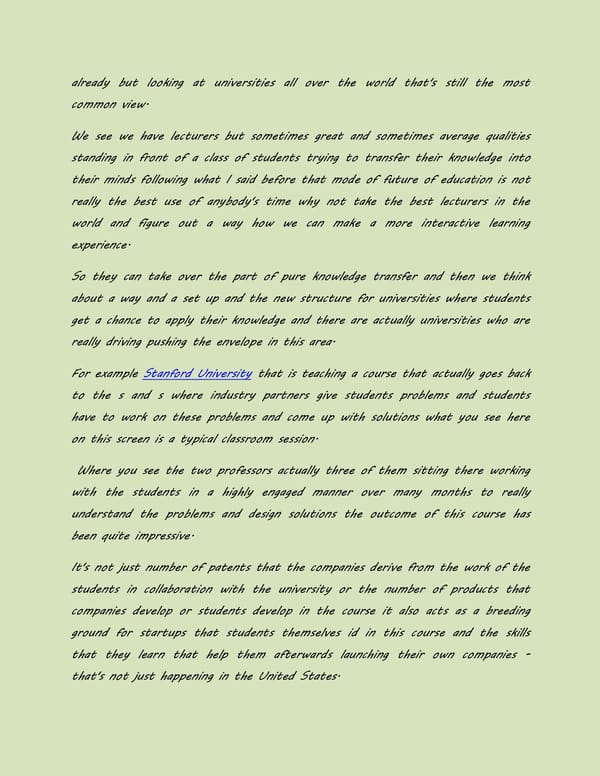already but looking at universities all over the world that's still the most common view. We see we have lecturers but sometimes great and sometimes average qualities standing in front of a class of students trying to transfer their knowledge into their minds following what I said before that mode of future of education is not really the best use of anybody's time why not take the best lecturers in the world and figure out a way how we can make a more interactive learning experience. So they can take over the part of pure knowledge transfer and then we think about a way and a set up and the new structure for universities where students get a chance to apply their knowledge and there are actually universities who are really driving pushing the envelope in this area. For example Stanford University that is teaching a course that actually goes back to the s and s where industry partners give students problems and students have to work on these problems and come up with solutions what you see here on this screen is a typical classroom session. Where you see the two professors actually three of them sitting there working with the students in a highly engaged manner over many months to really understand the problems and design solutions the outcome of this course has been quite impressive. It's not just number of patents that the companies derive from the work of the students in collaboration with the university or the number of products that companies develop or students develop in the course it also acts as a breeding ground for startups that students themselves id in this course and the skills that they learn that help them afterwards launching their own companies - that's not just happening in the United States.
 Artificial intelligence & the future of education systems Page 5 Page 7
Artificial intelligence & the future of education systems Page 5 Page 7